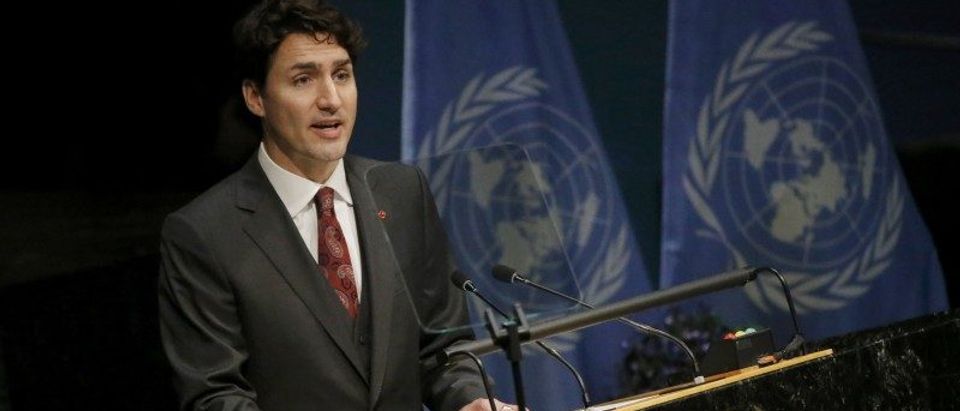Canadian Prime Minister Justin Trudeau will spend whatever it takes to achieve his dream of regaining a seat on the United Nations Security Council, CBC News reports.
Canada has already spent $500,000 in its quest for membership. It’s not exactly like a country can literally a buy a seat on the council; but securing membership is the result of a costly search to secure votes, much like an election campaign. The funds are burned up in travel, accommodation and hospitality costs, as well as paying 10 full-time salaried employees to dedicate their time to the file.
The Canadian foreign affairs department provided these details following a request from Conservative Member of Parliament Guy Lauzon.
The process of winning a council seat — as much as the council itself — is under increasing criticism as Trudeau vies with Ireland and Norway for the two seats opening on the council in 2021.
William Pace, who heads the World Federalist Movement, says things are out of control.
“Whatever the number is that they’re admitting to, you can be certain it is [many] times more,” he says.
“In terms of prestige … it’s a tremendously important achievement for a government,” Pace says of council membership. ”But I think the way they have to campaign to get the votes has become unacceptable.”
In securing a vote, it doesn’t matter whether that member state is a democracy or not, and at least a third of the UN is composed of authoritarian regimes. So if you’re seeking the support of a country run by a dictator, you’ll probably avoid criticizing their internal affairs and flagrant disregard for basic freedoms.
Avoidance of criticism is just the beginning. Countries vying for another state’s support will often offer assistance or foreign aid in what Pace calls the “horse trading” dynamic of UN politics.
There is plenty of other incentives to garner support, such as free trips for UN ambassadors to visit those countries seeking a seat on the council.
New Zealand’s envoy to the UN, Gerard van Bohemen, tells CBC News that the trips may be expensive and prone to be suspected as buying votes but he says “everybody does it now, including developing countries.”
Van Bohemen has become adept at the game, hosting 60 ambassadors over a month of trips to New Zealand, when he was working to obtain a council seat in 2015. He won’t call it vote-buying, choosing instead to describe the hosting as a means of gaining “affection and loyalty.”
Affection can also be secured by simply buying gifts for potential supporters, and it can be as obvious as leaving gift-wrapped packages on the desks of delegates in the general assembly.
Pace says if none of that achieves the desired result, a nation vying for support can also try “vote-swapping,” the legislative reciprocity of “I’ll vote with you on that issue if you vote for us on this.”
Trudeau declared his intention of seeking a council seat in 2016 when he announced that “Canada is back” as a force in UN peacekeeping, a pseudo-military role that many security experts argue is hopelessly archaic in the post-Cold War world of terrorist threats.
The previous Conservative government did not seek a council seat during its nine years in government because it viewed the organization as unhelpful to the promotion of democracy and dominated by despots.
That has never bothered Trudeau, who places great faith in UN.
“In terms of democracy, of course competition is good,” says ambassador Carl Skau, Security Council coordinator for Sweden at the UN. He says the competition allows the best country to win — though he allows the system is prone to abuse.
“Looking at some campaigns, I think that they have probably crossed the line in terms of what are reasonable costs,” says Skau, without naming names.












